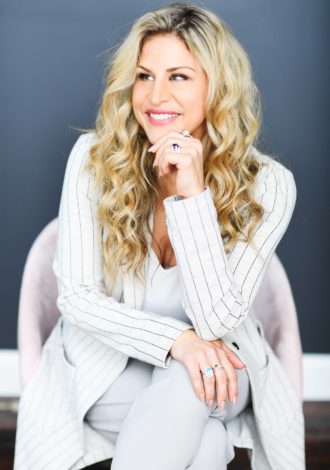As we all fondly — or not so fondly — recall, our childhood and adolescent years shaped us into who we are today, and that experience looks vastly different between girls and boys.
In some ways, we can help to define these formative years for our daughters, nieces, sisters and friends by promoting self-love and empowerment for the next generation of citizens and leaders.
Amanda Okaka helps to usher in 8th grade girls into a more fulfilling adulthood as program coordinator for the Girls Only Leadership Development program at YWCA Cambridge.
In partnership with Cambridge City Councillor E. Denise Simmons, the GOLD program is a free, weekly, after-school curriculum that cultivates self-love and self expression in young women through mentorship and community partnerships.
“The earlier young people can begin the process of introspection and self discovery, the better,” Okaka tells Exhale. Young girls’ identities tend to be influenced by outside factors such as how well they’re doing in school, who wants to be their friend, whether boys like them and who their parents are.
The earlier young people can begin the process of introspection and self discovery, the better. —Amanda Okaka
“But, there is so much more to who we are,” she says. “Girls can start thinking, ‘Who am I, and what do I value? What do I want from the world, and what do I want to give to the world?’ It is very powerful.”
Okaka is advising eight girls through the program’s current session, which began in November and will end in May, and she has noticed positive changes. The girls are feeling more confident speaking in front of a group, and they are discovering new interests and opportunities available to them.
It’s no surprise that competing for young girls’ attention today is an onslaught of images and messages on social media.
“The media has recently shed more light on what women are going through, today, which has led to really productive conversations with our girls,” says Okaka. “At the same time, we’re competing with outside factors that affect their self-esteem, like stereotypical portrayals of women and standards of beauty.”
There are social portrayals of how women should be submissive and subservient, she continues, and it’s “difficult because you want to teach compassion and build nurturing qualities in young people, but it should be for both men and women.”
Among the various workshops and topics explored in the GOLD curriculum is career day. Okaka invites accomplished women from various industries to speak about their career paths and give the girls an opportunity to ask questions. There are also sessions on how to build healthy relationships and financial literacy to encourage self-sufficiency.
Girls on the Run Greater Boston (GOTR), another local girls empowerment program, also highlights issues of independence and self-growth, while emphasizing physical activity and exercise.
According to Olivia Matthews, executive director of GOTR Greater Boston, statistically, girls’ self-esteem starts to drop at age 9 and their physical activity level also declines starting at age 10. “Our program counteracts this by taking girls through the intentional curriculum that not only exposes them to the joy and wellbeing of exercise, but loving themselves, too,” she says.
“It teaches girls that exercise is one tool they have to achieve their own potential,” Matthews adds. “It’s not about being the fastest, it’s about discovering how you can clear your mind, feel strong and healthy when you choose to exercise.”
It’s not about being the fastest, it’s about discovering how you can clear your mind, feel strong and healthy when you choose to exercise. —Olivia Matthews
Mothers, older sisters and mentors can expose young girls to positive role models through the books they read and the media they consume, suggests Matthews. “You can also have honest conversations with them about things you wish you had known growing up,” she says.
As unique individuals with inner “star power” as GOTR likes to call it, Matthews also recommends parents or mentors encourage the interests of young girls in their lives “whether it’s reading, painting or sports. It’s about figuring out what things help their inner star power to shine through.”



 3 min read
3 min read



